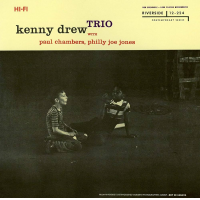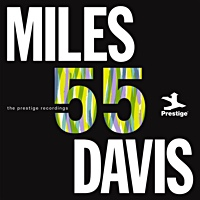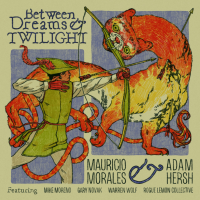Home » Jazz Musicians » Philly Joe Jones
Philly Joe Jones
Philly Joe Jones was born with the name Joseph Rudolph Jones in the city of Philadelphia on July 15, 1923. His mother, a piano teacher taught him the basics in music. In his formative years he also studied the drums with drummers the likes of Cozy Cole and Charles Wilcoxon, receiving valuable advise from Art Blakey and a then younger Max Roach. He established himself as "Philly Joe" Jones, from the name of the city of his birth, to distinguish himself from the mainstay Count Basie’s drummer, Jo Jones. But just as Jo Jones established the rhythm section standard in the 30’s and 40’s, Philly Joe would do the same in the 50’s.
He began playing with the rhythm and blues bands in the 40’s, establishing himself on the New York jazz scene. The first group that he recorded with was co-led by Johnny Griffin and Joe Morris, along with Matthew Gee on trombone and Elmo Hope on piano and Percy Heath. For a time they played standard Monk and pieces of Bud Powell, but reverted back to playing the blues for the sake of money. Philly, unhappy with the music, split with the group and joined the already established Ben Webster, Lee Konitz, Zoot Sims, Tony Scott, and Tadd Dameron. He worked in Philadelphia as the local drummer for stars such as Dexter Gordon and Fats Navarro. He was in the army for a short time and len left in 1945 taking a job up as a streetcar driver. He was supposedly fired from the job because he would stop the steetcar with people in it and go in to play a set at the jazz clubs on the way, sometimes forgetting about the people in the car.
The two major influences that have shaped Philly Joe’s career was his work with Tadd Dameron in the late 40’s to 1953 and then with Miles Davis from 1952-58. Working with Dameron taught him to play as a ‘big band’ drummer as well as behind a soloist. The most important association was that with trumpeter Miles Davis. The two would travel around the US stopping in cities to do a gig with the local talent. "Philly Joe Jones and I would go from city to city playing with local musicians. Philly would go ahead of me and get some guys together and then I would show and we’d play a gig. But most of the time this shit was getting on my nerves because the musicians didn’t know the arrangements and sometimes didn’t even know the tunes"(Miles’ Autobiography 179). It became "a drag" as Philly said because usually the local talent was not close to satisfactory. This went on from 52- 55. Then after a booking at a club in Baltimore, 1955, after being found by Philly Joe, Miles hired pianist Red Garland from Texas and bassist virtuoso Paul Chambers, then of 20 years of age. An invitation was extended to John Coltrane, who was tested by a the Miles arrangement of Two Bass Hit. After the gig Miles said to Jones, "I think this is it." Jones agreed having said of the group, "The first time we played together…we just looked around at each other and said, ‘hum here it is right here. We’ve got musical telepathy here. We have five people who always know what’s going to happen next.’" And those five people became legendary as the classic Miles Davis Quintet was baptized for its first time.
Read moreTags
Kenny Drew: Kenny Drew Trio

by C. Andrew Hovan
One of many American jazz musicians who made Europe home beginning in the early 1960s, pianist Kenny Drew is best remembered as the pianist on John Coltrane's seminal Blue Train--when he is remembered at all. Over the course of his career, Drew forged notable associations with Dexter Gordon and Jackie McLean, and recorded nearly 50 albums as a leader, most prominently Undercurrent (Blue Note, 1961) and Dark Beauty (SteepleChase, 1974). Passing away at the relatively young age of sixty-four, one ...
Continue ReadingMiles Davis: Miles '55: The Prestige Recordings

by Richard J Salvucci
It is hard to imagine any casual jazz fan failing a blindfold test on the vinyls on offer here. It is a game people play: how quickly can you identify the performer. A lot of horn players make it into the competition, because horns are boisterous and mimic the human voice and persona. Clark Terry, some say, requires one note. And for much of his career, starting in the mid-1950s, a compatriot and mentee of Terry's: Miles Davis was equally ...
Continue ReadingTrio and Quintet

by C. Michael Bailey
Pianist and composer Elmo Hope has more in common with Tadd Dameron than most of his other jazz peers. Both men were primarily composers and arrangers who concentrated on their own music rather than standards. Both men spent their professional lives in New York City during the twilight of bebop and the flourishing of hard bop. Neither man boasted large discographies as leaders, but appeared on a significant number of recordings as sidemen. Their careers were both shortened dramatically by ...
Continue ReadingMiles Davis: 2nd Session 1956 Revisited

by Glenn Astarita
The Miles Davis Quintet's 2nd Session 1956 Revisited revitalizes the iconic recordings from a pivotal year in jazz history. These original sessions, featuring Davis alongside luminaries like John Coltrane, Red Garland, Paul Chambers, and Philly Joe Jones, stand as timeless classics that have indelibly shaped the course of jazz.This revisited edition captures the very essence and vitality of those legendary sessions while infusing them with a fresh perspective. The music's hallmark traits--the melodic sophistication and improvisational brilliance--are expertly ...
Continue ReadingPhineas Newborn, Jr.: A World of Piano!

by Richard J Salvucci
Did a critic ever accuse classical concert pianist Martha Argerich of displaying too much technique while playing Ravel? It is hardly an idle question as Argerich, one of the most gifted pianists in history, plays Ravel beautifully precisely because she has the technique to do so. She could not play “Sonatine" or “Gaspard de la Nuit"--fearsomely difficult, say pianists--if she did not. The beauty is inseparable from the technique; and the technique part of the beauty. This is ...
Continue ReadingMiles Davis: Workin' With the Miles Davis Quintet

by Mark Corroto
1955/56 was an inflection point in the career of Miles Davis. The trumpeter and bandleader went from a promising talent to the high profile face of jazz and popular music. The two marathon sessions, May 11 and October 26, 1956, that created Workin' With the Miles Davis Quintet along with Cookin', Relaxin' and Steamin' might have been written off by Davis as a mere fulfillment of his contract duties for Prestige Records. He had signed a more lucrative contract with ...
Continue ReadingMiles Davis Quintet: 2nd Session 1956 Revisited

by Chris May
Rough round the edges some of the performances might be, but that is part of their real-time, first-take charm. The twelve tracks collected on 2nd Session 1956 Revisited are, nonetheless, arguably the most perfect Miles Davis ever recorded. Over the years they have been issued and reissued, anthologised and repackaged, almost as often as Louis Armstrong's Hot Fives and Hot Sevens. But never with as much attention to sonic detail as on this album, remastered by the ezz-thetics label's Michael ...
Continue ReadingJazz Musician of the Day: Philly Joe Jones

Source:
Michael Ricci
All About Jazz is celebrating Philly Joe Jones' birthday today!
Philly Joe Jones was born with the name Joseph Rudolph Jones in the city of Philadelphia on July 15, 1923. His mother, a piano teacher taught him the basics in music. In his formative years he also studied the drums with drummers the likes of Cozy Cole and Charles Wilcoxon, receiving valuable advise from Art Blakey and a then younger Max Roach. He established himself as “Philly Joe" Jones, from ...
read more
Jazz Musician of the Day: Philly Joe Jones

Source:
Michael Ricci
All About Jazz is celebrating Philly Joe Jones' birthday today!
Philly Joe Jones was born with the name Joseph Rudolph Jones in the city of Philadelphia on July 15, 1923. His mother, a piano teacher taught him the basics in music. In his formative years he also studied the drums with drummers the likes of Cozy Cole and Charles Wilcoxon, receiving valuable advise from Art Blakey and a then younger Max Roach. He established himself as “Philly Joe" Jones, from ...
read more
Jazz Musician of the Day: Philly Joe Jones

Source:
Michael Ricci
All About Jazz is celebrating Philly Joe Jones' birthday today!
Philly Joe Jones was born with the name Joseph Rudolph Jones in the city of Philadelphia on July 15, 1923. His mother, a piano teacher taught him the basics in music. In his formative years he also studied the drums with drummers the likes of Cozy Cole and Charles Wilcoxon, receiving valuable advise from Art Blakey and a then younger Max Roach. He established himself as “Philly Joe" Jones, from ...
read more
Jazz Musician of the Day: Philly Joe Jones

Source:
Michael Ricci
All About Jazz is celebrating Philly Joe Jones' birthday today!
Philly Joe Jones was born with the name Joseph Rudolph Jones in the city of Philadelphia on July 15, 1923. His mother, a piano teacher taught him the basics in music. In his formative years he also studied the drums with drummers the likes of Cozy Cole and Charles Wilcoxon, receiving valuable advise from Art Blakey and a then younger Max Roach. He established himself as “Philly Joe" Jones, from ...
read more
Jazz Musician of the Day: Philly Joe Jones

Source:
Michael Ricci
All About Jazz is celebrating Philly Joe Jones' birthday today!
Philly Joe Jones was born with the name Joseph Rudolph Jones in the city of Philadelphia on July 15, 1923. His mother, a piano teacher taught him the basics in music. In his formative years he also studied the drums with drummers the likes of Cozy Cole and Charles Wilcoxon, receiving valuable advise from Art Blakey and a then younger Max Roach. He established himself as “Philly Joe" Jones, from ...
read more
Jazz Musician of the Day: Philly Joe Jones

Source:
Michael Ricci
All About Jazz is celebrating Philly Joe Jones' birthday today!
Philly Joe Jones was born with the name Joseph Rudolph Jones in the city of Philadelphia on July 15, 1923. His mother, a piano teacher taught him the basics in music. In his formative years he also studied the drums with drummers the likes of Cozy Cole and Charles Wilcoxon, receiving valuable advise from Art Blakey and a then younger Max Roach. He established himself as “Philly Joe" Jones, from ...
read more
Jazz Musician of the Day: Philly Joe Jones

Source:
Michael Ricci
All About Jazz is celebrating Philly Joe Jones' birthday today!
Philly Joe Jones was born with the name Joseph Rudolph Jones in the city of Philadelphia on July 15, 1923. His mother, a piano teacher taught him the basics in music. In his formative years he also studied the drums with drummers the likes of Cozy Cole and Charles Wilcoxon, receiving valuable advise from Art Blakey and a then younger Max Roach. He established himself as “Philly Joe" Jones, from ...
read more
Jazz Musician of the Day: Philly Joe Jones

Source:
Michael Ricci
All About Jazz is celebrating Philly Joe Jones' birthday today!
Philly Joe Jones was born with the name Joseph Rudolph Jones in the city of Philadelphia on July 15, 1923. His mother, a piano teacher taught him the basics in music. In his formative years he also studied the drums with drummers the likes of Cozy Cole and Charles Wilcoxon, receiving valuable advise from Art Blakey and a then younger Max Roach. He established himself as “Philly Joe" Jones, from ...
read more
Jazz Musician of the Day: Philly Joe Jones

Source:
Michael Ricci
All About Jazz is celebrating Philly Joe Jones' birthday today! Philly Joe Jones was born with the name Joseph Rudolph Jones in the city of Philadelphia on July 15, 1923. His mother, a piano teacher taught him the basics in music. In his formative years he also studied the drums with drummers the likes of Cozy Cole and Charles Wilcoxon, receiving valuable advise from Art Blakey and a then younger Max Roach. He established himself as “Philly Joe" Jones, from ...
read more
Jazz Musician of the Day: Philly Joe Jones

Source:
Michael Ricci
All About Jazz is celebrating Philly Joe Jones' birthday today! Philly Joe Jones was born with the name Joseph Rudolph Jones in the city of Philadelphia on July 15, 1923. His mother, a piano teacher taught him the basics in music. In his formative years he also studied the drums with drummers the likes of Cozy Cole and Charles Wilcoxon, receiving valuable advise from Art Blakey and a then younger Max Roach. He established himself as “Philly Joe" Jones, from ...
read more




















































































